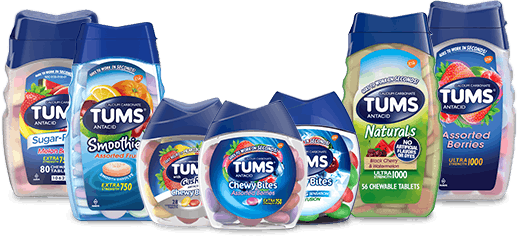9 Foods That Help Indigestion
From your eating habits to your clothing choices, here are the most common culprits.
Indigestion, or acid reflux, occurs when your lower esophageal sphincter—the muscle that separates your stomach from your esophagus and throat—isn’t working properly.1 This allows the contents of your stomach to enter your esophagus and throat, causing discomfort and pain in the upper abdomen. While OTC medications can provide relief, certain foods that you may already have in your fridge or pantry can help with indigestion too. In fact, diet is often the first line of defense against indigestion and heartburn.1 Explore the best foods for indigestion below and start adding them to your meals.
- Ginger: Ginger has natural anti-inflammatory and medicinal properties that help ease irritation in your digestive system. If you feel a bout of indigestion coming on, try ginger tea or ginger candy, or add some grated ginger to your meal.1
- Whole grains: Whole grains, such as brown rice, quinoa, oatmeal and whole wheat bread, are high-fiber foods that help promote digestion and prevent constipation. They‘re also filling foods that help prevent overeating, a common indigestion trigger.1
- Alkaline foods: Acidic foods and drinks, like citrus fruits and coffee, have a low pH. Bananas, melon, cauliflower, fennel, nuts and other alkaline foods sit on the opposite side of the scale and have a higher pH. These foods are more alkaline, and alkaline foods contain natural antacids that can help neutralize stomach acid.1
- Watery foods: Melons, such as watermelon, cantaloupe and honeydew, are high in water content and can dilute stomach acid. Other watery foods include lettuce, celery, cucumber, clear soups and herbal tea.1
- Fresh herbs: While unseasoned food can be a foodie’s worst nightmare, some people with indigestion can’t tolerate certain spices and herbs. If that’s the case, avoid spice blends or rubs that contain cayenne and chili powder, and try using fresh herbs instead of dried ones. Fresh herbs like parsley, basil and oregano are less concentrated and less likely to cause discomfort.2
- Milk and yogurt: Non-fat milk can help indigestion by coating your throat and protecting it from acid reflux. Yogurt does the same. In addition, yogurt contains probiotics, which are beneficial bacteria that can help promote healthy digestion. It can also help reduce inflammation and irritation in the stomach.1
- Lean meats: Fatty meats and processed meats, like bacon and ham, can linger in your stomach and take longer to digest, which can cause discomfort and indigestion.2 Opt for lean meats such as chicken, turkey and fish instead.
- Vegetables: Green vegetables, such as broccoli, asparagus and green beans, and root vegetables, such as carrots, sweet potatoes and beets, are high in fiber and help regulate digestion and prevent overeating.1
- Apple cider vinegar: While there isn’t much clinical research on apple cider vinegar for indigestion, some indigestion sufferers report that apple cider vinegar helps relieve their symptoms.1 However, apple cider vinegar is potent, so dilute it in warm water before sipping on it with a meal.1
The Worst Foods for Indigestion
While the above foods help relieve indigestion, there are also certain foods that can exacerbate your symptoms. The following foods can all be triggers for indigestion and should be consumed in moderation:1
- Fried food
- Fast food
- Pizza
- Processed snacks, like potato chips
- Fatty meats such as bacon and sausage
- Cheese
- Tomato-based sauces (some people can tolerate fresh tomatoes)
- Spices, like chili powder and pepper (white, black, cayenne)
- Citrus fruits
- Chocolate
- Peppermint
- Sparkling beverages
How You Eat Matters
In addition to eating an indigestion-friendly diet, when and how you eat also make a big difference in your indigestion symptoms. Try these tips to eat mindfully and reduce indigestion:3
- Eat slowly and chew your food so you know when you’re full.
- Avoiding large meals and eat smaller, more frequent meals throughout the day to avoid taxing your stomach.
- Avoid eating a few hours before bed to prevent heartburn at night.
By making these simple changes, you can help manage your indigestion symptoms and promote overall digestive health. If you overindulge and need quick relief, consider taking an antacid like TUMS to neutralize stomach acid.
Source Citations:
- GERD Diet: Foods That Help with Acid Reflux (Heartburn). John Hopkins.https://www.hopkinsmedicine.org/health/wellness-and-prevention/gerd-diet-foods-that-help-with-acid-reflux-heartburn. Accessed
- What to eat when you have chronic heartburn. Harvard Health. https://www.health.harvard.edu/diseases-and-conditions/what-to-eat-when-you-have-chronic-heartburn. Accessed 5/1/23.
- 9 ways to relieve acid reflux without medication. Harvard Health. https://www.health.harvard.edu/digestive-health/9-ways-to-relieve-acid-reflux-without-medication. Accessed 5/1/23.


